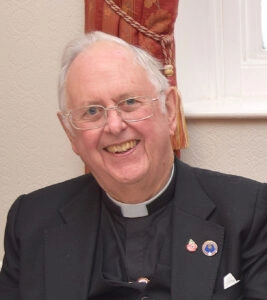Winston Churchill, as he then was, as First Lord of the Admiralty conceived the strategy that, if Turkey could be taken out of the war, it would not only relieve the danger to British interests in the Eastern Mediterranean and the Middle East, but would open up the seaway to the Black Sea, thus giving safe year round access to the ports of Britain and France’s ally, Russia, as well as freeing resources for the war on the Western Front. To attack Gallipoli and the Dardanelles was to strike at, what Churchill described as, the ‘Soft underbelly of Europe’. Strategically a sensible concept, ruined however by its tactical implementation. Instead of a combined forces operation of landing infantry under the cover of a naval bombardment, it was decided to send just a naval task force to force its way through the Dardanelles to Constantinople, as it was still known, and hopefully the threat of a naval bombardment on the Turkish capital itself would be sufficient to cause the Turks to capitulate.
So, in February 1915, a strong naval expedition was despatched. Clearly there was a lack of intelligence with no preparedness or thought as to how heavily the straits might be defended. The result was, that when a cruiser was sunk by a mine, the commanding officer aborted the mission as being too risky for his battleships. The attempt to achieve the objective the ‘easy’ way, by just using the Royal Navy, having failed, the Chiefs of Staff decided to do what should have been done in the first place: to invade with troops supported by naval bombardment, which they did in April 1915. Too late! The initial naval attack had alerted the Turks to the vulnerability of the area and had, therefore, strongly re-enforced the coastline at the approaches to the straits. The top brass in Whitehall had also underestimated the courage, tenacity and fighting ability of the Turkish army. The result was a strongly opposed landing which required great feats of bravery on the part of the allied forces to secure a beachhead. What was it that has been said about the first morning of the landings? Six VCs won before breakfast! During the next days and few weeks, with the aid of reinforcements, some progress was made by the allies but it soon degenerated into a stalemate where the allies could not advance and the Turks could not force the allies back. It just became a mutual killing ground with heavy casualties on both sides with 36,000 men of the Commonwealth being killed. After nine months the futility and waste of resources of the campaign dawned on the chiefs of staff and the allies made a ‘strategic withdrawal. One particular result of this mismanaged campaign was the respect that the Turkish soldier earned in the eyes of the British and Commonwealth ‘Tommies’, who bestowed on him the sobriquet or nickname of ‘Johnny Turk’ in honour of his bravery and fighting spirit
Perhaps brethren you may have picked up a clue from this potted history as to why I do not believe that the founders of Gallipoli Lodge of Mark Master Masons are in any way trying to ‘rub our noses in it’. Indeed, far be it any such intention on their part. It was surely done for a number of especial reasons. Firstly to remember the place where British and Turkish blood was shed and mingled together in death and in the hope that no such tragedy should befall our nations again and secondly to mark the mutual respect that was engendered by that campaign.
It is evident that from mutual respect friendship has grown and out of friendship, and through Masonry, Brotherly Love. Masonry, this secular organization for men of religion which, by its teaching, strives to enhance civilization by inculcating within its members the practice of those noble and virtuous attributes of morality and ethics that they are taught by the doctrines of their individual religious faiths. This is done in order that we may be better men than we would otherwise be and thus have a greater civilizing effect on society in general and that war may be no more.
I feel that this is well illustrated by this particular Order of Mark Master Masons. We promise that, on being presented with the evidence (his Mark) that a brother is a Mark Mason, we will help him in any way we can and, though not bound to aid him again until he has repaid any debt, there is no limit as to the extent to which our love should extend in the relief we should be prepared to offer a brother in distressed circumstances. May we never reject the opportunity of helping a brother through lack of ascertaining his worthiness in the way the Overseers rejected the stone possessing merits of which they were unaware.
So I feel I cannot better finish than to quote from Psalm 118 (NRSV) in which we first read of the stone rejected by the builders.
The stone that the builders rejected
has become the chief cornerstone.
this is the Lord’s doing;
It is marvellous in our eyes.
This is the day the Lord has made;
let us rejoice and be glad in it.
Save us we beseech you, O Lord!
O lord, we beseech you, give us success!
Brethren, I pray that success may come in abundance to Gallipoli Lodge!
Rev Michael D Seymour-Jones
